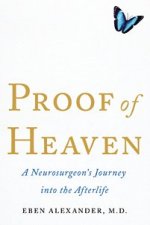David Baxter PhD
Late Founder
Heaven or hallucination: Are near-death experiences proof of the afterlife?
by Wency Leung, The Globe and Mail
Thursday, Oct. 11 2012
Eben Alexander is convinced heaven exists. Although he had long been skeptical of other people’s near-death experiences, the Harvard neurosurgeon became a believer in the afterlife when he had his own brush with death.
In an essay published this week in Newsweek, Alexander describes how he fell into a seven-day coma in 2008 after contracting a rare form of bacterial meningitis. Although his higher-order brain functions totally shut down, he recalls that his inner self remained conscious.
“It took me months to come to terms with what happened to me. Not just the medical impossibility that I had been conscious during my coma, but – more importantly – the things that happened during that time,” he wrote. “Toward the beginning of my adventure, I was in a place of clouds. Big, puffy, pink-white ones that showed up sharply against the deep blue-black sky.”
He then recalls seeing flocks of creatures that looked like birds or angels and hearing “a sound, huge and booming like a glorious chant.”
Even stranger, he says, he was accompanied by a young woman who communicated to him without using words: “You are loved and cherished, dearly, forever.”
Alexander admits all this may sound hokey, but he notes that the cortex of his brain was completely shut down during this time.
“All the chief arguments against near-death experiences suggest that these experiences are the results of minimal, transient, or partial malfunctioning of the cortex,” he wrote. “My near-death experience, however, took place not while my cortex was malfunctioning, but while it was simply off.”
Similarly, in a book published earlier this year, To Heaven and Back, orthopedic surgeon Mary Neal writes about her own account of being transformed from a cynic to believer after an out-of-body experience while nearly drowning during a kayaking trip. In an interview with Today, she recalled a sense of being comforted and reassured and seeing a group of spirits that had come to greet her.
As Scientific American previously reported, science can explain many aspects of near-death experiences as mere glitches of normal brain function. The commonly described light at the end of the tunnel, for instance, can occur due to a decrease in oxygen and blood flow to the eye. A number of drugs can produce the sense of euphoria that those who have had near-death experiences describe.
Scientific American noted that around three per cent of Americans say they have had a near-death experience, and such experiences are reported across cultures.
by Wency Leung, The Globe and Mail
Thursday, Oct. 11 2012
Eben Alexander is convinced heaven exists. Although he had long been skeptical of other people’s near-death experiences, the Harvard neurosurgeon became a believer in the afterlife when he had his own brush with death.
In an essay published this week in Newsweek, Alexander describes how he fell into a seven-day coma in 2008 after contracting a rare form of bacterial meningitis. Although his higher-order brain functions totally shut down, he recalls that his inner self remained conscious.
“It took me months to come to terms with what happened to me. Not just the medical impossibility that I had been conscious during my coma, but – more importantly – the things that happened during that time,” he wrote. “Toward the beginning of my adventure, I was in a place of clouds. Big, puffy, pink-white ones that showed up sharply against the deep blue-black sky.”
He then recalls seeing flocks of creatures that looked like birds or angels and hearing “a sound, huge and booming like a glorious chant.”
Even stranger, he says, he was accompanied by a young woman who communicated to him without using words: “You are loved and cherished, dearly, forever.”
Alexander admits all this may sound hokey, but he notes that the cortex of his brain was completely shut down during this time.
“All the chief arguments against near-death experiences suggest that these experiences are the results of minimal, transient, or partial malfunctioning of the cortex,” he wrote. “My near-death experience, however, took place not while my cortex was malfunctioning, but while it was simply off.”
Similarly, in a book published earlier this year, To Heaven and Back, orthopedic surgeon Mary Neal writes about her own account of being transformed from a cynic to believer after an out-of-body experience while nearly drowning during a kayaking trip. In an interview with Today, she recalled a sense of being comforted and reassured and seeing a group of spirits that had come to greet her.
As Scientific American previously reported, science can explain many aspects of near-death experiences as mere glitches of normal brain function. The commonly described light at the end of the tunnel, for instance, can occur due to a decrease in oxygen and blood flow to the eye. A number of drugs can produce the sense of euphoria that those who have had near-death experiences describe.
Scientific American noted that around three per cent of Americans say they have had a near-death experience, and such experiences are reported across cultures.

